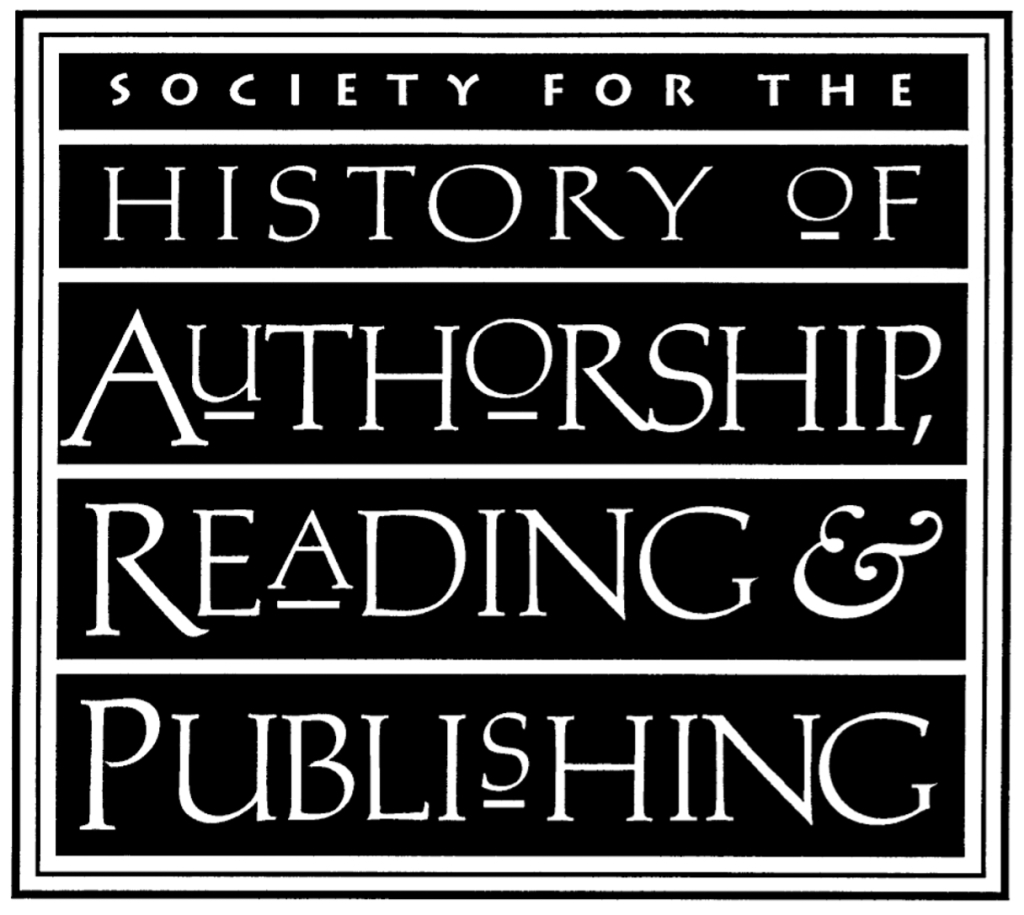I’m a book historian, with a PhD in historic Scottish reading habits. For many years I have been a member of SHARP, the Society for the History of Authorship, Reading & Publishing. I have also attended numerous SHARP academic conferences in person, since 2005, presenting papers at a number of them. Though now attendance in person isn’t feasible any more for me, given my progressive neurological disease.
During the Covid pandemic era some of the SHARP conference content has been available to view online, though this has been varied by year in terms of number of online events. However this year, 2023, the conference was run completely online, organised by the University of Otago in New Zealand, but streaming worldwide, both to watch live and on catchup. This way speakers and attendees from all over the world could participate.
I was too ill to offer a talk this year, and also too ill in late June to watch the conference live. However I’ve just enjoyed watching it on catchup. Talks as originally streamed via Zoom were available for paid attendees to watch on catchup through August, using a web browser Zoom interface (which my laptop browser was a bit flaky over, but we got there!). I had also printed out the programme, and noted which talks were of most interest to me to watch, given my limited time. Here are the panels I watched over the last couple of months:
- Readers on Bookstagram
- Eighteenth-century Libraries Online: An Introduction and Showcase
- Special Collections’ Pedagogies as Immersive Encounters
- Dickens as Author and Publisher
- Networks of Support
- ‘They Are Books to Me’ (Until they Aren’t): Reader Experiences of the Realness of Electronic Books.
- Traces of Readers
- Black Voices in North American Colonial Print
- Counterculture and Collections
- Censorship in Spain and Mexico
- Reading Together and On Screen
- Digital Platforms and New Opportunities in Book History
Most of these panels had a couple of speakers plus a chair. I must thank all the speakers and chairs I saw, for what was a very efficiently run series of talks. Plus thanks to the people taking part after in the Q&A sessions for each panel, even if as a catchup viewer I was not able to take part in the live Q&As myself. And enormous thanks to the technical team keeping things running smoothly, and to the organisers of the conference. Though I was surprised there was no directly provided chat facility to assist networking and communications between attendees. For example a Discord facility could have helped here.
My own book history research focuses on reading habits, primarily in seventeenth, eighteenth and nineteenth century Scotland. However I have wider book history interests, both in time and space, and also theme. So I was delighted to watch many talks from this conference. Every single talk I watched inspired me in some way or another, whether it be research questions, interesting areas new to me to follow up, or methodology or presentation. I was constantly taking screen shots of interesting things for later followup.
A particular highlight for me was Laura Dietz’s keynote on electronic books. Due to my progressive neurological disease I have struggled increasingly with print books since the late 1990s, including throughout my PhD. I am a passionate advocate of ebooks as a valid form of reading, and angry that this can be dismissed too readily by some readers and also some academic book historians. If I’d given a talk to SHARP this year it was going to be a very personal one about my own experiences as a disabled reader who is both academic book historian and enthusiastic reader, and relies on ebooks for accessibility reasons. Laura’s talk touched on this, discussing results from a survey researching in this reader. And some of the people who had responded echoed my views. So I felt represented.
I am also an enthusiastic member of online book groups, so talks about Bookstagram and communal book club reading appealed. Likewise learning about Black book history topics was enlightening. And of course familiar areas to me, such as the Liverpool Eighteenth-Century Libraries Online group presenting a demo of their database plus initial findings.
I know that there is a push back towards face to face conferences, including in SHARP. But I hope that online streaming – and some form of hybrid – will continue to allow access to the conference for people who cannot be there in person, whether for economic reasons, disability or health risks, family or caring commitments, or aspects of geography. SHARP 2023 has been a delight for me, even on catchup. I hope that SHARP 2024 will be too.
